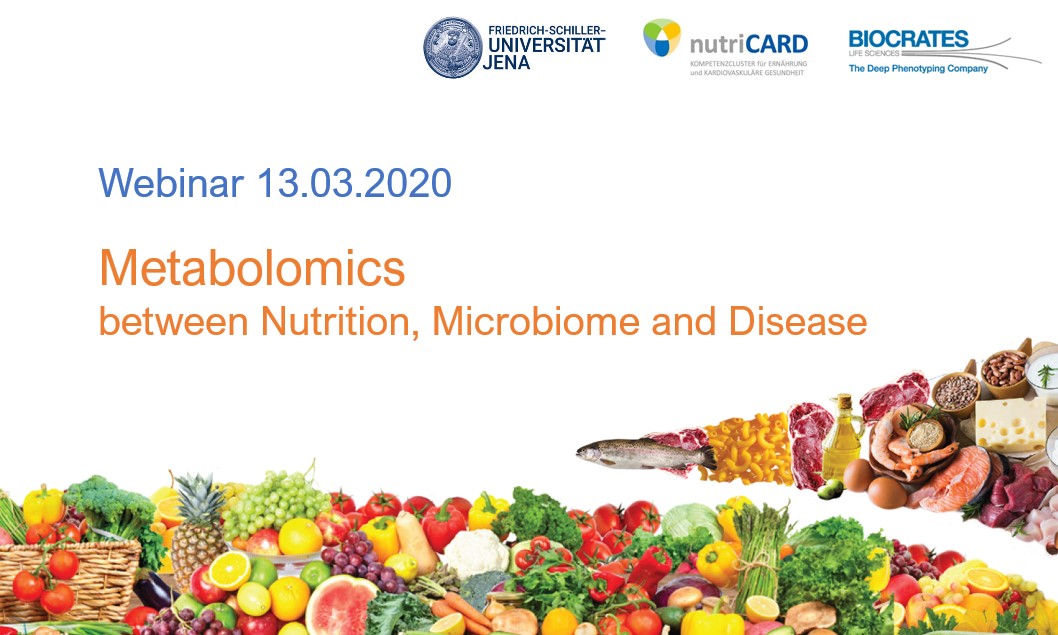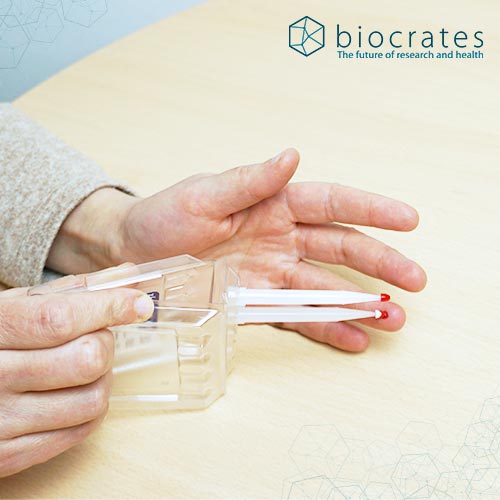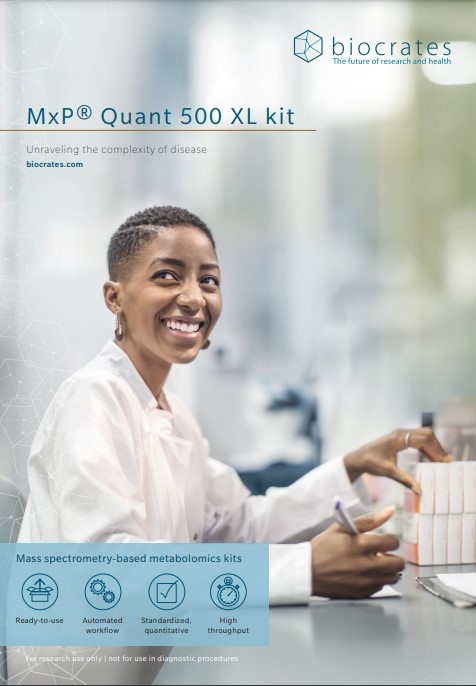Metabolomics – The link between nutrition and health


Metabolomics – The link between nutrition and health
A balanced diet is a prerequisite for good health. Whether it is diabetes, cardiovascular disease, cancer, or depression, patients suffering from many ailments can greatly benefit from an adapted diet. The metabolome is a unique environment that displays the impact of diet on health.
Nutrimetabolomics
A balanced diet is a prerequisite for good health. Whether it is diabetes, cardiovascular disease, cancer, or depression, patients suffering from many ailments can greatly benefit from an adapted diet. The metabolome is a unique environment that displays the impact of diet on health.
Food, as our primary source of nutrients, impacts our metabolism. Whether they are directly absorbed or metabolized in the intestines before entering the circulation, these nutrients constitute a crucial source of metabolites including:
- Building blocks for macromolecules (incl. essential amino acids)
- Lipids for cell membranes
- Energy sources
- Vitamins
- Signaling molecules
- Micronutrients (incl. metals and salts)
Nutrimetabolomics focuses on the application of metabolomics in nutritional studies. Like all omics, metabolomics can be used to find features or patterns that discriminate between treatments and diet groups. However, metabolomics is particularly suited for nutritional studies for the following reasons:
- Metabolism is the link between nutrition and health
- Metabolomics can spot individual variations in dietary requirements
- The establishment of a person’s “metabotype” can help establish personalized nutrition plans
Related products
MxP® Quant 500 kit
The most comprehensive kit to study mechanisms of disease, nutrition, and the microbiome
SMartIDQ alpha kit
Efficient metabolomics workflows for busy service laboratories
AbsoluteIDQ® p180 kit
The gold standard in targeted metabolomics for all fields of research
What does metabolomics bring to nutrition research?
Bacteria and other microorganisms greatly contribute to the health of their hosts. Below are examples where metabolites necessitate microbial intervention to maintain their function, and some of the effects of dysbiosis, or microbial imbalance, on related metabolic pathways.
Metabolic syndrome
Metabolic syndrome which is known to be caused as well as treated by diet was initially found in Western countries but has become more visible in many parts of the world. Characterized by obesity, high blood pressure, high blood glucose and triglycerides, and/or low blood HDL, this disease often presents concurrently with type 2 diabetes and cardiovascular diseases. A combination of diet, exercise, and reduced stress levels is often suggested to improve the patient’s well-being, with the emphasis on a specialized nutritional regimen to both treat and prevent metabolic syndrome. Metabolomics has contributed for years to understand the origins and underlying mechanisms of metabolic syndrome and the strategies to best manage it.
Epilepsy
The high fat/low carbohydrates ketogenic diet has been used since the early 20th century to prevent seizures in epileptic patients. The basic principle is to switch the energy source from carbohydrates to ketone bodies which have shown to reduce seizure frequency in epileptic patients. The mechanism for this anti-seizure effect remains elusive. Recent research in mice suggests a role of the gut microbiota influencing metabolism and culminating in a protective increase of the GABA/glutamate ratio in the brain.
Metabolites as markers of dietary intake
Blood is a rich source of metabolic information about individual nutrition. As nutrients are absorbed and then distributed throughout the body, a single blood spot becomes the owner of a wealth of information about our nutritional status. For example, it can tell whether a patient drank coffee or took a specific over-the-counter drug. Metabolomics can also help monitor patients compliance to a diet in nutritional research. For instance, metabolites can distinguish between meat-rich and vegetable-rich diets (e.g. using the levels of 1-methylhistidine and phenylacetylglutamine), or it can tell which fruits have been recently eaten.
More resources addressing targeted metabolomics and nutrition
Energy metabolism in cancer – Mechanisms, plasticity and applications
Cancer cells rely on altered energy metabolism to fuel growth. See how metabolomics sheds light on these changes and their impact on tumor progression and therapy.
Participatory medicine – Transform medicine with metabolomics – part 5 of 5
In this five-part blog series, Alice Limonciel explores the role of metabolomics in 5P medicine. In this final article of our 5P medicine series, we explore how metabolomics empowers participatory medicine by enabling patients to collect meaningful health data from home.
Population based medicine – Transform medicine with metabolomics – part 4 of 5
In this five-part blog series, Alice Limonciel explores the role of metabolomics in 5P medicine. In this 3rd article she explores how metabolomics is driving real-world applications of precision medicine, especially in predictive diagnostics, treatment optimization, and personalized nutrition. Learn why sex-based data stratification is essential, how metabolic profiles reveal hidden disease subtypes, and why the future of medicine is personal.
Related assets
brochure
biocrates kit technology
pdf ~ 6 MB
download
AppNote
Metabolomics in home sampling
pdf ~ 1 MB
brochure
MxP Quant 500 XL kit
pdf ~ 2 MB
download
brochure
biocrates services
pdf ~ 1,5 MB
download
Talk to an expert

biocrates life sciences gmbh
Eduard-Bodem-Gasse 8
6020 Innsbruck | AUSTRIA
Phone +43 512 579823
Fax +43 512 579823-329
biocrates inc.
26895 Aliso Creek Rd Ste B-426
Aliso Viejo, CA 92656-5301
Phone +1 774 424 8150
Operating hours: Mo – Fr | 9 am – 7 pm (EST)










